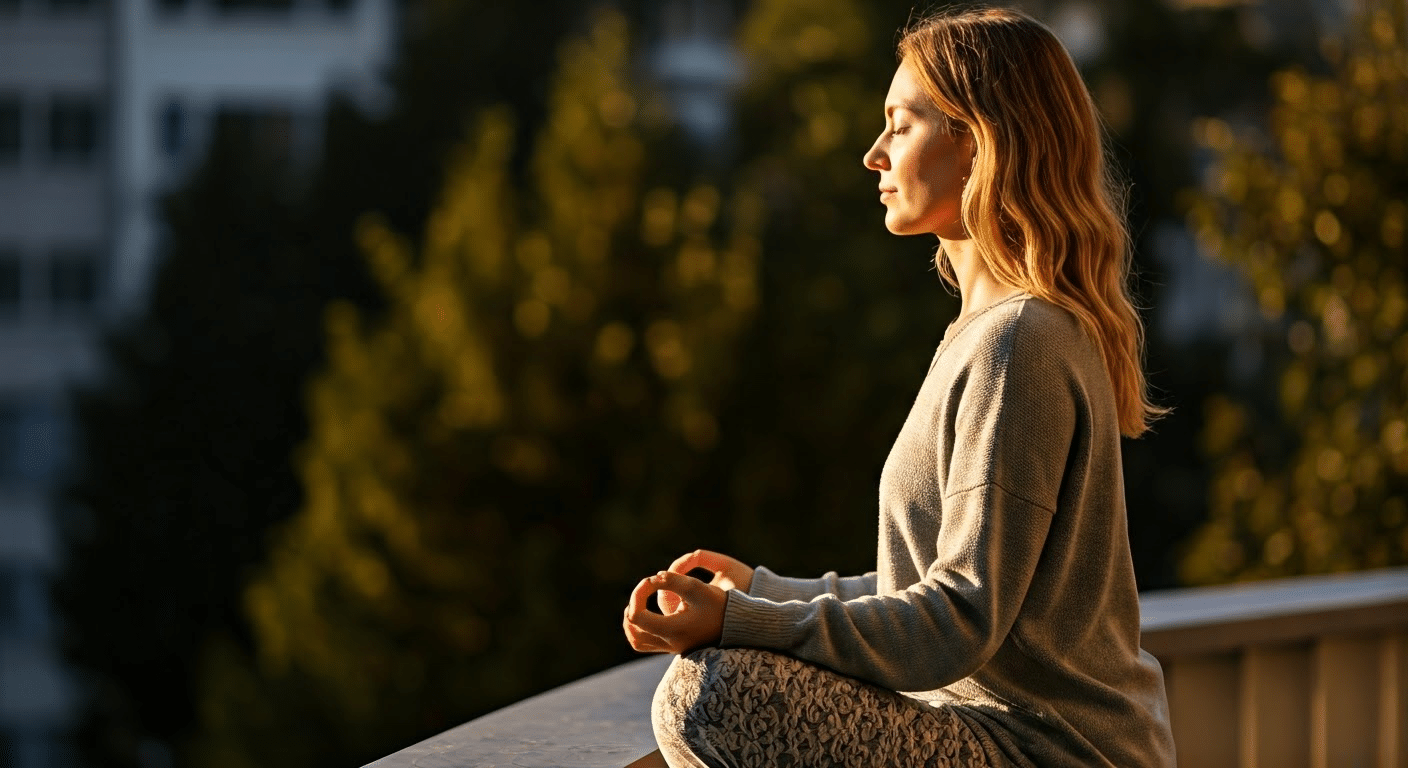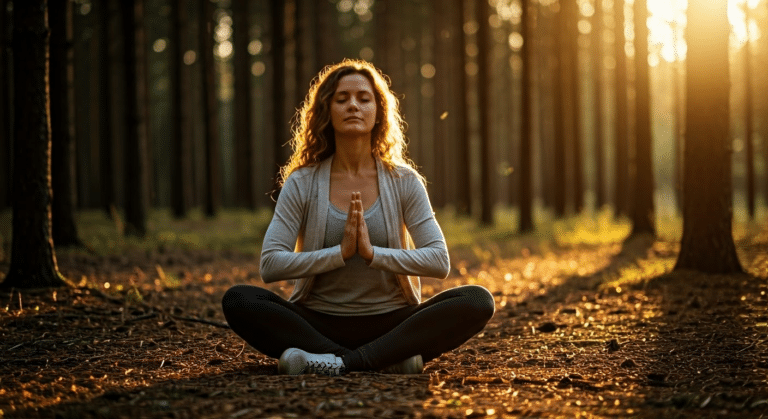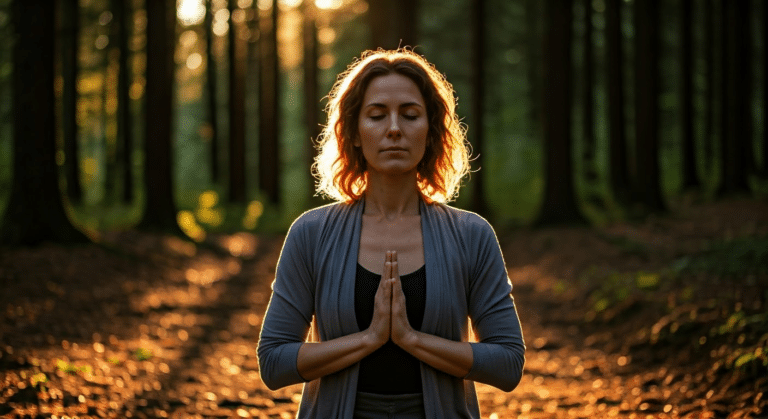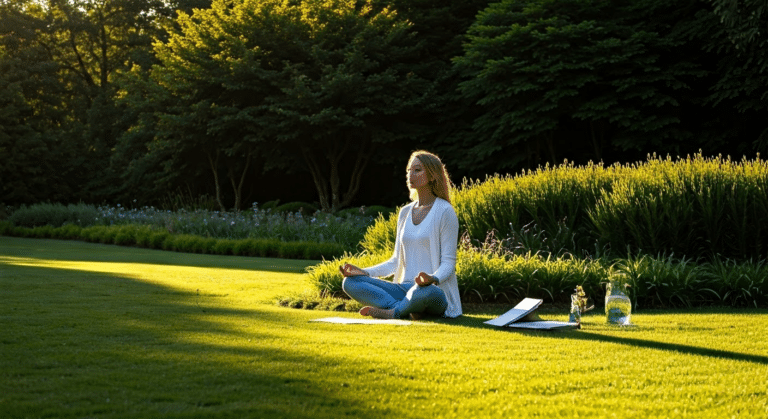Best Time For Meditation
Last Updated on February 26, 2025 by Teodor Brebeanu
A key insight I’ve discovered is that finding the best time for meditation can significantly enhance its benefits. Meditation, a practice known for its ability to improve concentration and reduce stress, can be even more effective when timed correctly. The morning is often recommended due to its quiet and fresh atmosphere, but each person may find their unique period that works best for them. Exploring the timing can open doors to deeper relaxation and mindfulness. Rethinking Ways To Be
In my experience, the late afternoon has been an ideal time to relax and reset. This practice not only revitalizes my mind but also prepares me for the evening ahead. I’ll share more about these timing strategies and how they can be personalized to fit individual needs. As we dive deeper into the topic, we’ll uncover how the right period for meditation can transform your practice and well-being.
Morning Meditation: Starting Your Day Right

While many think the best time to meditate is subjective, I’ve found that the early morning presents a unique opportunity. It’s the first thing I do each day, and this practice sets a positive tone for the hours to come. The morning is often considered the best time for meditation because the mind is refreshed and not yet cluttered with the day’s activities. This allows for a deeper focus and enhances overall well being. Read more: Headspace.
Engaging in a morning meditation practice has significantly improved my focus and productivity throughout the day. Being fully awake and alert, I find that meditating in the morning helps me tackle tasks with a clear mind. Moreover, it’s easier to maintain a regular meditation practice when it’s the first thing on your schedule. This habit not only reduces stress levels but also supports mental well being. Mastering Mindfulness In The
Building on this, incorporating meditation into my morning routine has become essential. There’s a certain time when the world is still quiet, making it the ideal time for reflection and mindfulness. By meditating, I align my thoughts and intentions before diving into the day’s activities. This practice is not just about finding peace but also about preparing myself mentally and emotionally for whatever comes my way.
In conclusion, the benefits of morning meditation are profound. It’s a simple yet powerful way to enhance focus, reduce stress, and improve overall well being. So, why not make it the first thing you do each day?
Midday Meditation: Taking a Break for Mindfulness

What makes this stage so unique? Midday meditation provides a perfect opportunity to pause, breathe, and reset during the lunch hour. By meditating at this time, we can effectively manage stress and maintain our mental health throughout the entire day. This practice isn’t just about relaxation; it’s about creating a productive break that rejuvenates our mind and body. What Makes Mindful Therapy Read more: Psychologytoday.
Building on this concept, using a lunch hour for stress reduction allows us to return to our tasks with a fresh perspective. Guided meditations can offer a quick reset, helping us to refocus and tackle the afternoon with renewed energy. In my experience, meditating has been a vital part of my daily routine, acting as a sign of commitment to self-care and mental clarity.
Moreover, meditation experts emphasize the importance of integrating breath work into these sessions. Focusing on our breath helps us stay grounded and calm, reducing the impact of stress on our well-being. This is particularly significant for those dealing with chronic conditions, as regular midday meditation can serve as a natural remedy to alleviate symptoms and enhance overall health.
What stands out is the transformative power of this practice. By incorporating midday meditation, we’re not just managing stress; we’re cultivating a lifestyle that prioritizes mental wellness. This shift creates a more balanced, intentional approach to our entire day, ensuring we remain centered and mindful, regardless of external pressures. Ultimately, this midday pause is a small yet powerful step towards maintaining a harmonious life. The Guide to Mindful
Latest Insights and Developments
Understanding the optimal time for meditation can significantly enhance its benefits. Recent research and analyses have shed light on when meditation can be most effective for different individuals.
Key Research Findings
Recent studies have revealed several crucial insights about the best time for meditation:
- Morning meditation can increase focus and productivity throughout the day.
- Evening meditation aids in relaxation and better sleep patterns.
- Midday meditation can reduce stress levels and improve mental clarity.
Important Statistics
Data highlights the impact of meditation timing on well-being: Transform Your Mindful Minute
- 70% of morning meditators report enhanced mood and energy. (Source: National Wellness Survey, 2023)
- 60% of evening meditators experience a 30% improvement in sleep quality. (Source: Sleep Foundation Study, 2024)
- Midday meditators note a 40% decrease in afternoon fatigue. (Source: Workplace Wellness Report, 2025)
Latest Developments
Emerging trends and innovations in meditation practices:
- Apps offering customized meditation schedules based on individual circadian rhythms.
- Wearable technology tracking optimal meditation timing for personalized feedback.
- Corporate wellness programs integrating midday meditation breaks for employees.
These insights and developments emphasize the importance of choosing the right time for meditation to maximize its benefits, tailoring practices to individual needs and lifestyles.
Mindful Meditation: Professional Strategies
Evening Meditation: Unwinding After a Long Day
Clinical data shows that meditating in the evening can be a transformative experience, offering a much-needed calm after a busy day. This practice not only helps to decompress but also sets a peaceful tone for a restful night. Research shows that evening meditation can significantly decrease anxiety levels, allowing for better sleep. Many find that this is the best time to meditate, especially when life feels overwhelming.
One fascinating aspect of evening meditation is its ability to prepare the mind for rest. By focusing on mindfulness meditation, we create a sense of calm that permeates through the night. This naturally leads to improved sleep quality, as the mind is less cluttered with daily stressors. Moreover, research shows that incorporating just five minutes of meditation before bed can lead to a notable enhancement in sleep efficiency.
The debate on whether to meditate right before sleeping is ongoing. Some argue that meditating too close to bedtime might re-energize the mind, making it difficult to fall asleep immediately. However, others believe it is the best time to meditate because it helps transition from the day’s chaos into a serene state. In my experience, finding the best time to meditate requires personal experimentation, though early morning hours can also be effective for some.
Ultimately, the best time to meditate is whenever it fits naturally into your routine. Whether in the morning or evening, incorporating mindfulness meditation into daily life enhances overall well-being and provides a profound sense of peace.
Choosing the Best Time: Personal Preferences and Lifestyle
Modern studies demonstrate that the best time to meditate is a personal choice, influenced by unique lifestyle factors. Whether you’re a night owl or an early riser, finding the right moment can significantly enhance your mental health. I’ve found that my energy levels vary, so the answer depends on my daily schedule.
Consider your work routine. If you’re swamped during the day, a lunch break can offer a perfect opportunity to pause and focus on the present moment. For others, the quiet of night provides a serene backdrop for meditation, allowing a deeper connection and reduction in anxiety. Research consistently shows that such practices can improve mental health.
When determining the best day to meditate, it’s crucial to align it with your personal goals. Are you seeking to reduce anxiety, or enhance focus? Your answer depends on these objectives. Building a weekly dose of meditation into your routine can provide cumulative benefits. Practicing regularly can make meditation a transformative part of your life.
To personalize your meditation timing, consider what factors affect you most. Do you feel more anxious at certain times? Does your energy peak in the morning? Research suggests tailoring your schedule to these patterns can offer maximum benefits. Whether it’s during a lunch break or at night, the key is consistency and listening to your body’s cues.







